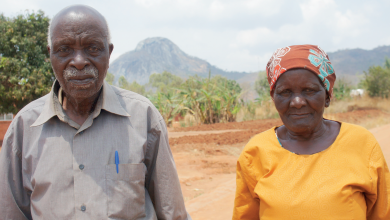A nation choked by plastic
In Lilongwe’s Area 36, a thin blue smoke rises above clustered homes. It is the familiar stench of burning plastic—acrid, choking and common.
For 13-year-old Agnes Banda, the making of supper has just began.
Her mother, Sungeni, squats by a three-stone fire, fuelling the flames with maize stalks and shredded single-use plastics from a nearby dumpsite to make up for scarce firewood and costly charcoal.
The mother of four says burning plastic has become a part of her cooking routine.
But what sizzles in the pot is not the only smell in the air.

The toxic fume of burning plastics are overpowering, choking her and other family members with every melting single-use carrier bag.
“Sometimes I feel dizzy and struggle to breathe. The smoke makes me cough, but I have no choice,” says Sungeni.
Malawi generates about 75 000 tonnes of plastic waste annually, but most of it is neither recycled nor reused.
It pollutes water bodies, farmlands, forests and the air. With limited waste collection, especially in informal settlements, much of this plastic ends up burned, buried or blocking drains—turning open spaces into dumping grounds.
The plastic pollution prompted government to ban thin plastic production and use in 2015, but the outlaw has been slowed by court orders obtained by concerned manufacturers.
In February this year, the High Court scrapped the recurring court dispute this year, freeing the Malawi Environmental Protection Authority (Mepa) to enforce the ban.
“The honeymoon is over,” said Yusufu Nkungula, Principal Secretary for Natural Resources and Climate Change. “The court has energised us and we will go with full force in inspecting manufacturers, distributors, retailers and users. We will confiscate all thin plastics that we find.”
According to Mepa, less than 10 percent of plastic is properly disposed of. This has left the country wrapped in plastics as enforcement of the ban remains sluggish.
“We want to promote the use of recommended plastics and alternative carrier bags which we will be sensitising the public on,” said Mepa director general Wilfred Kadewa
“Plastic in every bite”
In Nkhotakota along the shores of Lake Malawi, fisher Ziyada Mwadza, 62, holds up a battered chambo fish caught at dawn and slices it open. Inside Malawi’s emblematic fish, he pulls out a tangle of nylon thread and a crumpled candy wrapper. The tilapia, exclusively found in the country’s largest lake, has plastic inside.
“Even the fish are eating our plastics now,” the fisher mutters. “And we eat the fish.”
Environmental scientist Save Kumwenda says plastics do not only suffocate and kill animals but also slowly poisons living things, including human beings.
“Some animals accidentally ingest plastics, and these may interfere with digestion and cause death. This can also happen to aquatic animals,” he says.
Mwadza’s family has eaten lake fish for generations, but now fears for their health.
Algal blooms in polluted water, choking the lake while creating dumpsites for plastic waste.
“What once was life-giving is now quietly turning deadly,” he states.
Since the courts upheld the ban on plastic thinner than 60 microns, the single-use have paled from traditional blue to the colourless once reserved for bread wrappers.
At Limbe Market, in Blantre vendors wrap hot beans, sweet potatoes and zigege in clear plastic bags.
For shoppers and traders like Chikondi Mwale, 34, the takeaways are fast and affordable.
But every hot meal wrapped in plastic releases dioxins, harmful chemicals that cause cancer.
“No one tells us this is dangerous,” Chikondi says, calming a coughing baby on her back. “I only hear these things on the radio sometimes.”
In rainy seasons, plastic waste clogs the drains in cities and towns, fuelling flooding and swamps that breed mosquitoes, which transmit malaria.
Hidden cost
Kumwenda, an environmental health specialist from Malawi University of Business and Applied Sciences in Blantyre, warns: “This is not just an environmental issue. It’s a human rights crisis. Clean air, safe food and unpolluted water should not be a privilege”.
“We need to heavily restrict the use of thin plastic. Without this, we will be gradually killing ourselves,” he said.
Back in Area 36, Agnes and her mother gaze at the smoke from the open fireplace, inhaling the toxic fumes.
“I want to be a nurse,” she says. “But if I keep breathing this smoke, maybe I won’t live long enough to see my dream come true.”
Approximately 3.2 million people die every year globally due to illnesses linked to smoke-related indoor air pollution, according to the World Health Organisation.
“Plastic is not just clogging our cities; it’s choking our futures,” says Kumwenda.
Meanwhile, the machines churning out the banned plastics continue despite Mepa’s promise to close the factories that do not switch to sustainable alternatives.





